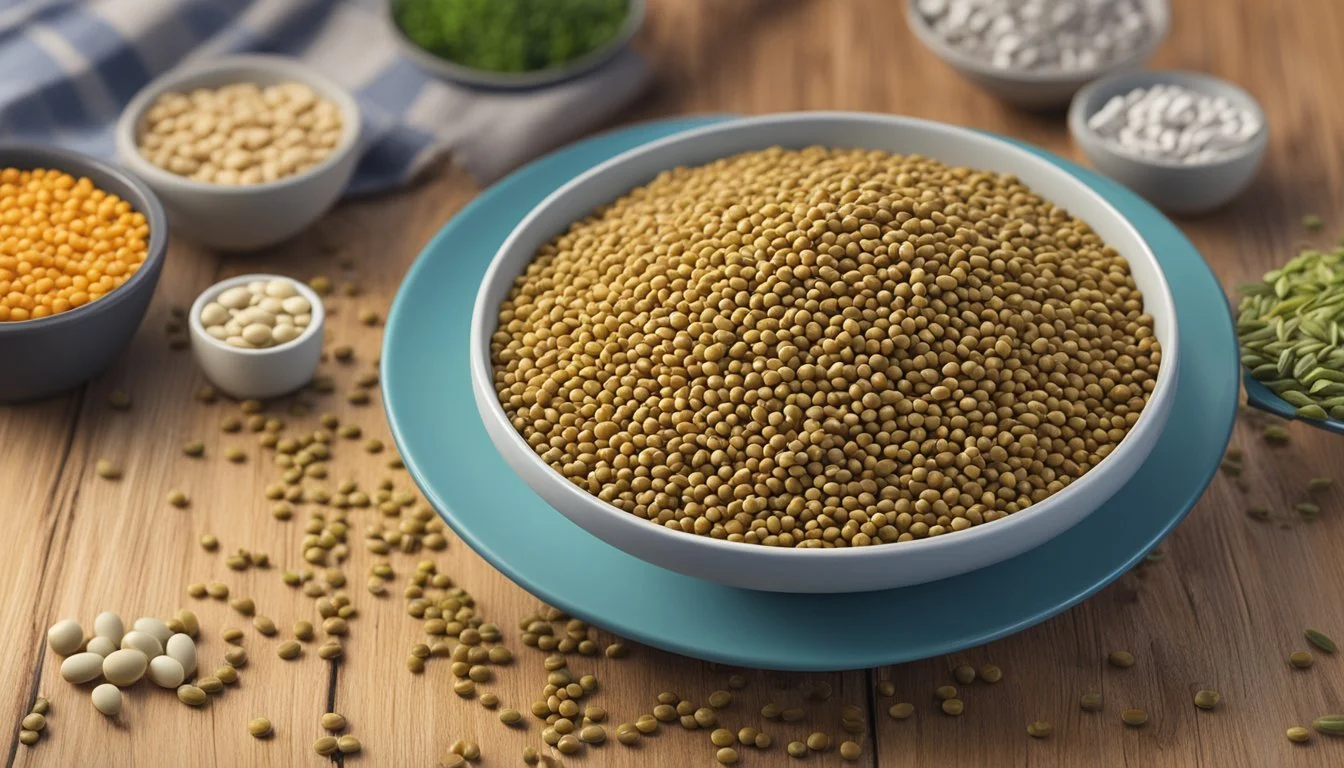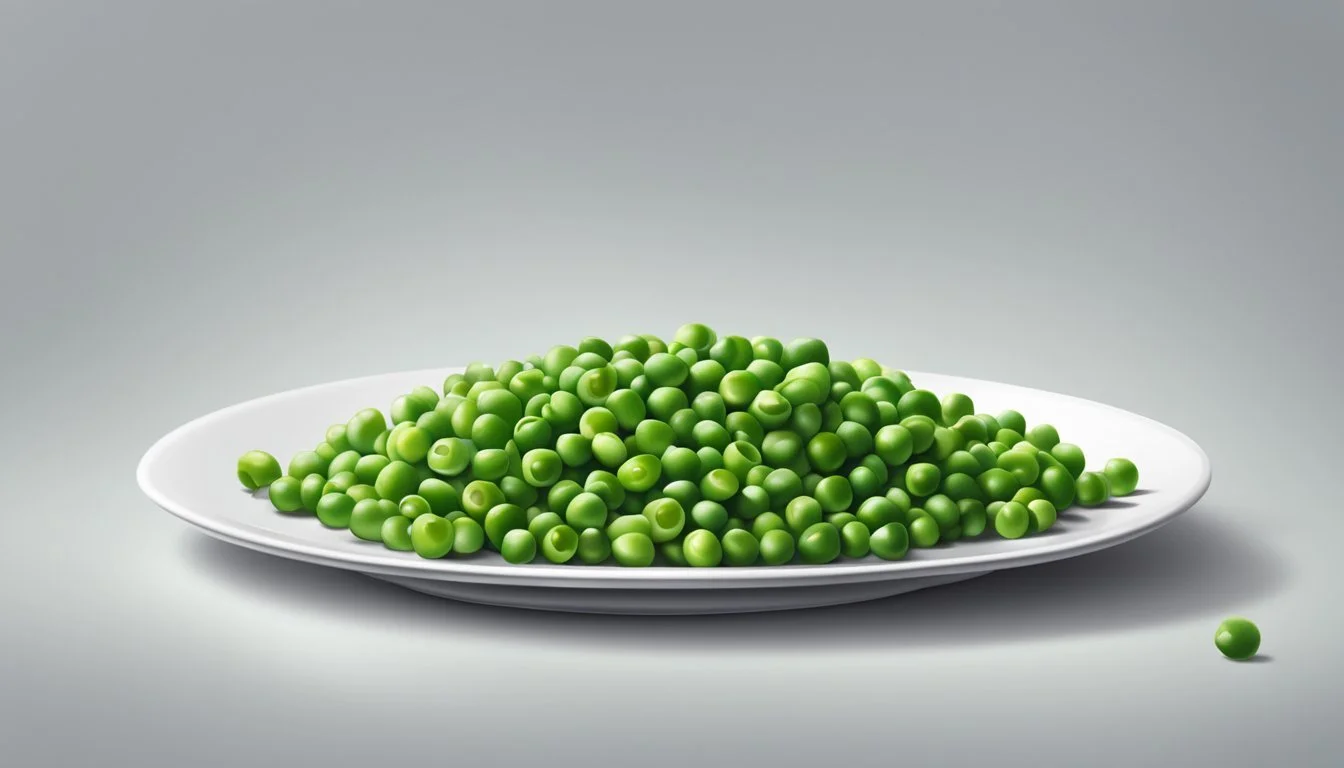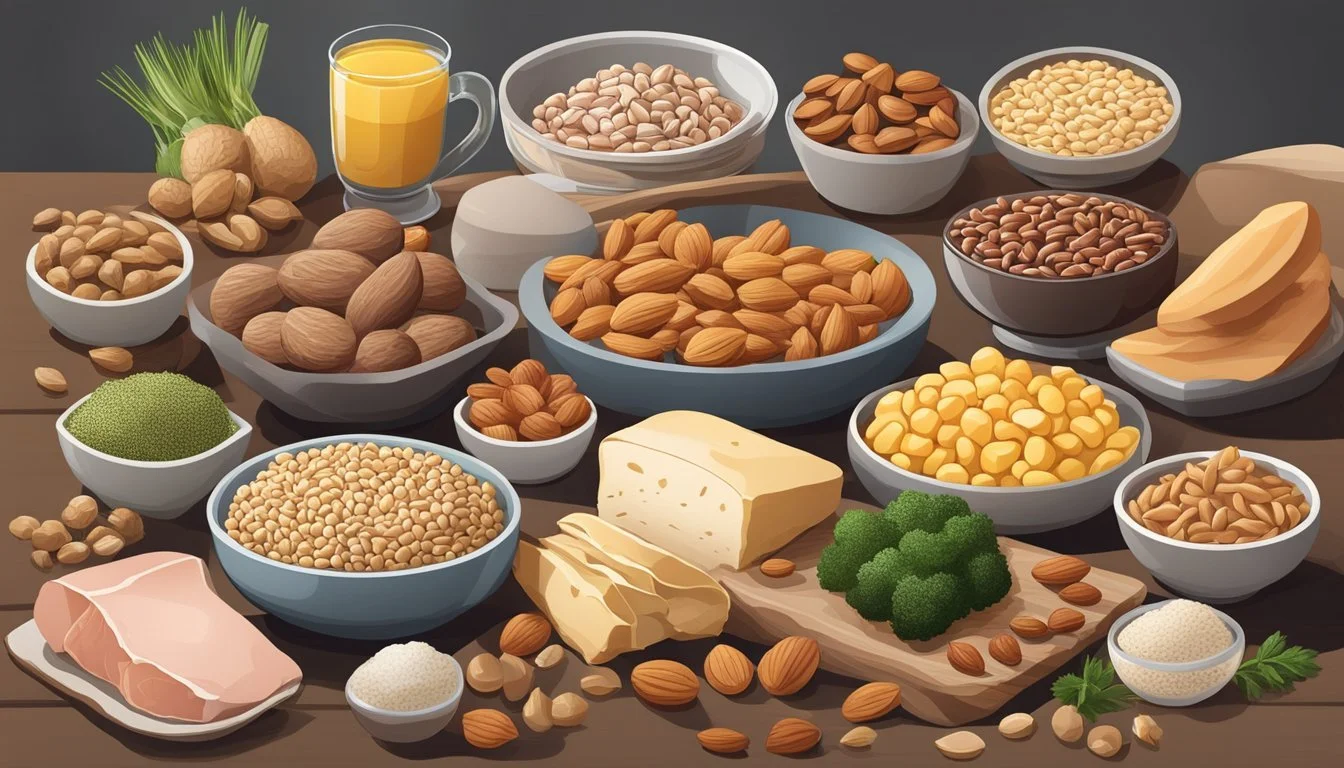Top Foods Rich in Thiamine (Vitamin B1)
Top Sources for Optimal Health
Thiamine, also known as Vitamin B1, is a crucial water-soluble vitamin that plays a significant role in energy metabolism and the functioning of cells. Many people may not be aware of the importance of getting enough thiamine through their diet, which is essential for maintaining overall health.
Identifying foods high in thiamine can help ensure an adequate intake and support various bodily functions. Since the body doesn't store large amounts of thiamine, it's important to include thiamine-rich foods in daily meals, making dietary choices vital for energy production and cellular function.
1) Pork
Pork stands out as a significant source of thiamine, also known as vitamin B1. Thiamine plays a critical role in energy metabolism by helping convert carbohydrates into energy.
A serving of pork, particularly lean cuts like pork chops or tenderloin, contains more thiamine than many other food options. This makes it an excellent choice for those looking to increase their intake of this essential nutrient.
In addition to its thiamine content, pork offers protein, essential amino acids, and various other vitamins and minerals. These nutrients contribute to overall health and well-being, supporting muscle function, and maintaining a healthy immune system.
Including pork in a balanced diet can help ensure adequate thiamine levels. This can be particularly beneficial for maintaining adequate energy levels and supporting neurological health.
2) Brown Rice
Brown rice is a significant source of thiamine (vitamin B1). Unlike white rice, it retains its outer layer, known as the bran, where a substantial portion of its nutrients, including thiamine, are stored.
Per serving, brown rice can provide a notable amount of thiamine. This makes it a valuable addition to diets aiming to increase vitamin B1 intake.
Brown rice also offers other nutritional benefits. It contains more fiber compared to white rice, which assists with digestion and helps maintain steady blood sugar levels.
Fortification practices in some regions can further enhance the thiamine content of brown rice. Even without fortification, its natural thiamine levels are substantial. This whole grain option supports both energy production and nervous system health.
3) Sunflower Seeds
Sunflower seeds are an excellent source of thiamine (Vitamin B1). These seeds are particularly noted for their nutritional profile, containing a significant amount of vitamins and minerals.
A serving of dry roasted sunflower seeds without salt can provide a substantial boost to daily thiamine intake. Specifically, 100 grams of these seeds offer a noteworthy quantity of thiamine, along with other essential nutrients.
In addition to thiamine, sunflower seeds are rich in healthy fats, protein, and fiber. They are also a good source of vitamin E, magnesium, and selenium.
Incorporating sunflower seeds into the diet can be simple. They can be added to salads, yogurt, or consumed as a snack to ensure a steady intake of thiamine and other beneficial nutrients.
4) Trout
Trout is an excellent source of thiamine, also known as vitamin B1. This nutrient is crucial for converting carbohydrates into energy and supporting nerve function.
A typical serving of trout provides a significant portion of the daily recommended intake of thiamine. Consumption of this fish can help maintain healthy energy levels and neurological function.
In addition to thiamine, trout offers other essential nutrients like protein and omega-3 fatty acids. These contribute to heart health and general well-being.
Including trout in a balanced diet can be beneficial for those looking to increase their thiamine intake through natural food sources. This fish is a versatile option that can be prepared in various ways, making it easy to incorporate into meals.
5) Mussels
Mussels are a rich source of thiamine (vitamin B1), making them a valuable addition to a balanced diet.
These shellfish provide a nutrient-packed option for those looking to boost their vitamin B1 intake. A 100-gram serving of cooked mussels typically contains a significant amount of thiamine, along with other essential nutrients like protein, omega-3 fatty acids, and minerals.
Including mussels in meals can help support energy metabolism and overall health. They can be prepared in various ways, such as steaming, boiling, or incorporating them into soups and pasta dishes.
Mussels not only offer nutritional benefits but are also considered environmentally sustainable seafood due to their low impact on marine ecosystems. They grow quickly and require minimal resources, making them an eco-friendly choice.
For individuals looking to enhance their thiamine intake through diet, mussels present a delicious and nutritious option.
6) Lentils
Lentils are a highly nutritious legume that are an excellent source of thiamine (vitamin B1).
A typical serving of cooked lentils can provide a substantial amount of thiamine, contributing to the daily recommended intake.
Moreover, lentils are easy to incorporate into a variety of dishes, enhancing both the nutritional value and flavor of meals.
7) Black Beans
Black beans are an excellent source of thiamine, offering a nutritious addition to many meals.
A single cup of cooked black beans provides approximately 0.4mg of thiamine, equating to about 35% of the daily value.
Black beans are not just valued for their thiamine content. They are also rich in protein, fiber, and other essential nutrients.
Including black beans in a diet can help boost overall nutrient intake. They can be easily incorporated into soups, salads, and stews, making them a versatile food choice.
Additionally, black beans have a low glycemic index, which can be beneficial for managing blood sugar levels.
Cooking black beans requires minimal effort, and they can be prepared in various ways to suit different culinary preferences.
Black beans are economical and widely available, making them a practical option for many people.
8) Acorn Squash
Acorn squash is a variety of winter squash known for its distinct shape and rich, orange flesh. It is a highly nutritious vegetable that offers a notable amount of thiamine (Vitamin B1).
A serving size of one cup, or approximately 205 grams of cooked acorn squash, provides about 29% of the daily value of thiamine.
This makes acorn squash a valuable addition to a diet aimed at boosting thiamine intake.
Besides thiamine, acorn squash is rich in other vitamins, minerals, and fiber, contributing to overall health and well-being.
Its versatility in cooking allows it to be included in a variety of dishes, adding both nutritional value and delicious flavor.
9) Asparagus
Asparagus is a nutritious vegetable that offers a healthy dose of thiamine, also known as vitamin B1. A cup of cooked asparagus provides approximately 0.29 mg of thiamine, which is about 24.2% of the daily value for this essential vitamin.
This tender green vegetable is not only a good source of thiamine but also contains other important nutrients. It provides fiber, vitamins A, C, and K, as well as folate.
Asparagus can be prepared in various ways to suit different taste preferences. It can be grilled, sautéed, steamed, or even added to soups and salads. Its versatility makes it easy to incorporate into a balanced diet.
10) Green Peas
Green peas are an excellent source of thiamine (vitamin B1). They provide a significant amount of this nutrient, making them a beneficial addition to a balanced diet.
Green peas can be easily incorporated into various meals. They can be added to salads, soups, and stews, or served as a side dish.
Rich in protein and fiber, green peas also offer other vitamins and minerals, enhancing overall nutritional value.
They are commonly available in both fresh and frozen forms, ensuring accessibility throughout the year.
Understanding Thiamine B1
Thiamine B1 is an essential nutrient that plays a crucial role in energy metabolism and nerve function. It is naturally present in both plant-based and animal-derived food sources.
What is Thiamine B1?
Thiamine, also known as Vitamin B1, is a water-soluble vitamin that the human body cannot produce on its own. It must be obtained through dietary sources or supplements.
Thiamine is rapidly absorbed in the small intestine and is utilized by almost every cell to convert carbohydrates into energy. Unlike fat-soluble vitamins, thiamine does not accumulate in the body and needs to be replenished regularly.
Foods like liver, pork, and seaweed are particularly rich in this vitamin.
Importance of Thiamine B1 in the Human Body
Thiamine B1 is essential for the proper function of various physiological processes. It plays a key role in the metabolism of carbohydrates and amino acids.
One of its primary roles is to help convert nutrients into usable energy; it is particularly important for organs with high energy demands, such as the heart, brain, and muscles.
Thiamine deficiency can lead to conditions such as beriberi and Wernicke-Korsakoff syndrome, which affect the cardiovascular and nervous systems respectively.
Regular intake of thiamine-rich foods or supplements ensures the body maintains adequate levels for optimal health.
Health Benefits of Thiamine B1
Thiamine B1 offers significant advantages, including its vital role in energy metabolism and its importance for the nervous system function. This vitamin is crucial for converting nutrients into energy and maintaining proper cognitive functions.
Energy Metabolism
Thiamine B1 is essential in carbohydrate metabolism. It acts as a coenzyme in the conversion of carbohydrates into energy, which is crucial for maintaining energy levels throughout the day.
It also supports the metabolism of amino acids and lipids. This comprehensive metabolic role makes thiamine important for individuals with high energy demands, such as athletes and those with physically demanding jobs.
Additionally, thiamine helps in the synthesis of adenosine triphosphate (ATP), the primary energy carrier in cells. Without adequate thiamine, the body may struggle to efficiently generate energy, leading to fatigue and decreased physical performance.
Nervous System Function
Thiamine B1 plays a key part in maintaining optimal nervous system health. It is vital for the synthesis of neurotransmitters, which are chemicals that transmit signals in the brain and throughout the nervous system.
It is also involved in the conduction of nerve impulses. Proper thiamine levels help ensure that nerve signals are transmitted efficiently, which is essential for muscle coordination and cognitive functions.
Moreover, thiamine has a protective role for nerve cells. It helps to prevent complications such as nerve inflammation and oxidative stress, which can lead to neuropathy and other disorders. Proper intake of thiamine can thus contribute to overall neurological health and function.
Daily Thiamine B1 Requirements
Daily thiamine requirements vary based on age, sex, and physiological conditions like pregnancy. Understanding these nuances is vital for maintaining optimal health and energy levels.
Recommended Dietary Allowances (RDAs)
Thiamine intake recommendations are established by age and sex:
Men (19+ years): 1.2 mg/day
Women (19+ years): 1.1 mg/day
Pregnant Women: 1.4 mg/day
Breastfeeding Women: 1.4 mg/day
These values are critical to support normal cellular functions and prevent conditions like beriberi. Consuming a varied diet rich in thiamine, such as whole grains, pork, and legumes, is advised to meet these RDAs effectively.
Factors Affecting Thiamine Absorption
Several factors influence thiamine absorption in the body. Alcohol consumption is known to impair thiamine uptake and utilization. Additionally, certain medical conditions, such as Crohn's disease, can reduce absorption efficiency. Diet plays a pivotal role—consuming foods with high anti-thiamine compounds (like tea and certain fish) can negatively impact thiamine levels. Ensuring a balanced diet and monitoring alcohol intake can help maintain adequate thiamine levels.










